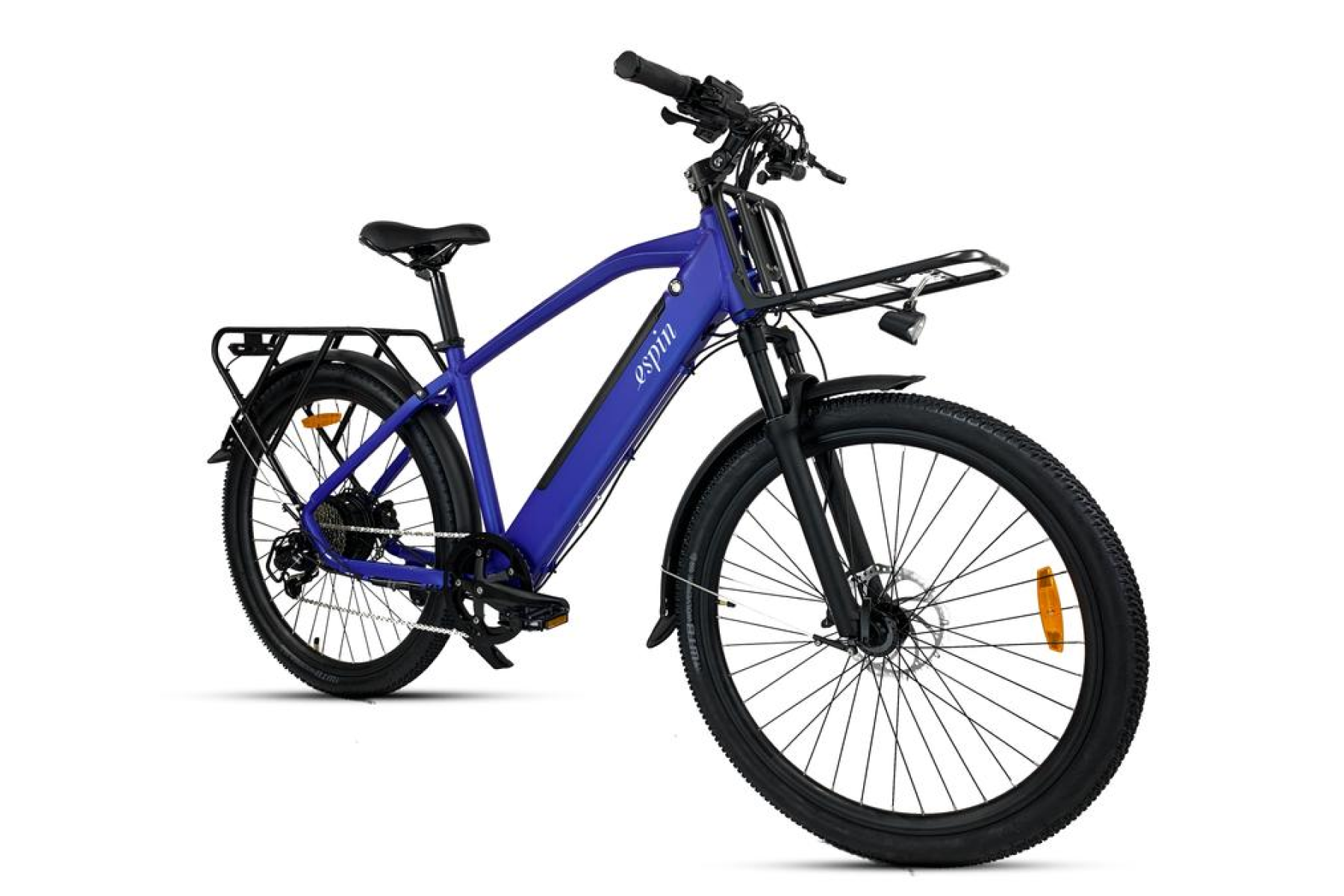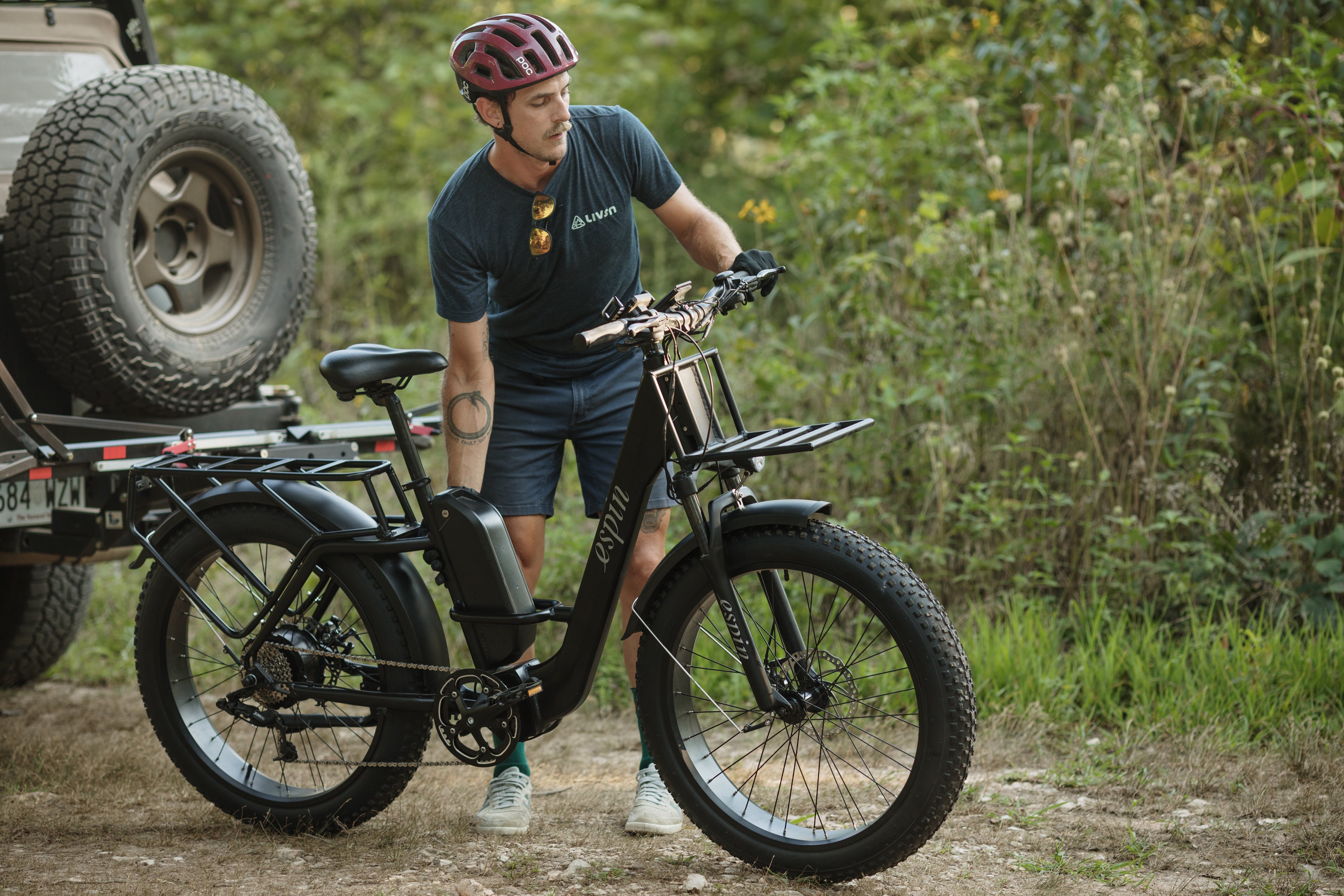I didn’t realize how handy an electric bike could be until I got one. I loved riding my bike to errands, work, fun, or nearly everywhere, but even after nearly a year of riding, I was still really slow. I pushed my bike up hills as my kids rode to the top and waited for me. This was a little embarrassing, so I converted my old secondhand bike into an electric bike. It made all the difference. I still got exercise, but when I needed help, my e-bike gave me a little push.
I can use my bicycle whenever I want now. Also, using my e-bike instead of my car means I’m helping fight climate change. I’ve seen more people riding electric bikes when I’m out riding mine—and more people riding electric means more people fighting to save the environment.
E-Bike Act
So, I was really excited when I heard about the Electric Bicycle Incentive, Kickstart for the Environment (E-BIKE) Act. This act introduced by representatives Jimmy Panetta (D-CA) and Earl Blumenauer (D-OR), would give a significant tax incentive for purchasing an electric bike. Someone who purchases an electric bike would receive an income tax credit for 30% of the purchase price, up to $1500.
This credit is refundable as well. However, this is not for luxury bikes and only applies to e-bikes that cost less than $8000. The limit shouldn’t be much of an issue, as most e-bikes are under this price. The e-bike also must not have a motor more powerful than 750W.
The credit is a great way to encourage people to ride e-bikes instead of using a car since an electric bike can be fairly costly. On Espin models, a 30% credit can make a real difference, specifically up to a $450 one. It may encourage some people who would otherwise feel an electric bike was too expensive to purchase one and hopefully use it instead of their car for some trips.
Bicycle Commuting Reimbursement
The other part of this proposed act is to revive and expand the bicycle commuting reimbursement. The credit previously existed but was temporarily suspended in 2017. This tax incentive allowed employers to reimburse their employees up to $240 annually tax-free for care and maintenance on bikes they used to commute to work.
The E-BIKE Act will expand the definition of the bicycle to include e-bikes. This also expands the reimbursement to allow it to apply to e-bike rentals as well, which, like e-bike purchases, are rapidly growing in popularity.
This credit encourages people to use their bikes instead of their cars for their work commutes rather than just for fun. This is essential for riding e-bikes to help the environment.
Getting people to do this may not be easy, but this credit is a start. The credit would now allow employers to reimburse employees for up to $600 annually instead of the original $240 for bicycle expenses for bikes used for commuting to and from work. This credit covers expenses, such as purchasing, repairing, improving, and storing a bike.
This part of the bill could really encourage e-bike use, especially since e-bikes have become increasingly popular during the COVID-19 pandemic. People could revert back to cars if the pandemic ends, but offering incentives for commuting with e-bikes might get some commuters to keep using their e-bikes, maybe even ones originally purchased for recreation.
Why E-Bikes?
Panetta and Blumenauer hope this legislation will pass and start making e-bikes a more popular form of transportation. This could make a real impact on carbon emissions. A recent study found that if just 15% of car trips were replaced with e-bikes, carbon emissions would drop 12%.
Unlike commuting with a regular bike, e-bikes can get you to work and other activities without breaking a sweat. Plus, they can make distances previously too far to bike more possible, opening up more commutes to riders than ever before.
Encouragingly, similar programs across Europe have been wildly successful and resulted in sold-out shelves for e-bikes. Hopefully, the US can achieve similar success.
Challenges
Though the rapid growth has been promising, it’ll take more steps to achieve the 15% change in consumers’ use of e-bikes versus other transportation. More roads must become bike-friendly. Although bike lanes have proliferated, some roads are still too dangerous for bikes. I know there are some roads where I won’t ride my bike due to safety concerns. Cars get far too close for comfort on occasion, so bike lanes are needed to denote a clear space for bikes.
Plus, even supporters of the bill have questioned whether a buyer rebate is enough. Not only do there need to be safe roads for riders to travel, but bikers need secure, convenient spaces for storing their bikes. After all, once you get to work, you need to park, and the investment is typically higher for an electric bike than a regular bike.
This is less of an issue for folks who have a foldable electric bike, such as the Espin Nesta, which folds up so you can store it easily and take it with you where you need to.
Final Thoughts
E-bikes are the fastest-growing part of the biking industry, and this new tax credit may accelerate this trend even more. For many, this bill represents a chance to reduce carbon emissions and support alternatives to environmentally-damaging forms of transportation. However, for other riders, an e-bike might mean their riding days aren’t behind them just yet.









Leave a comment
This site is protected by hCaptcha and the hCaptcha Privacy Policy and Terms of Service apply.